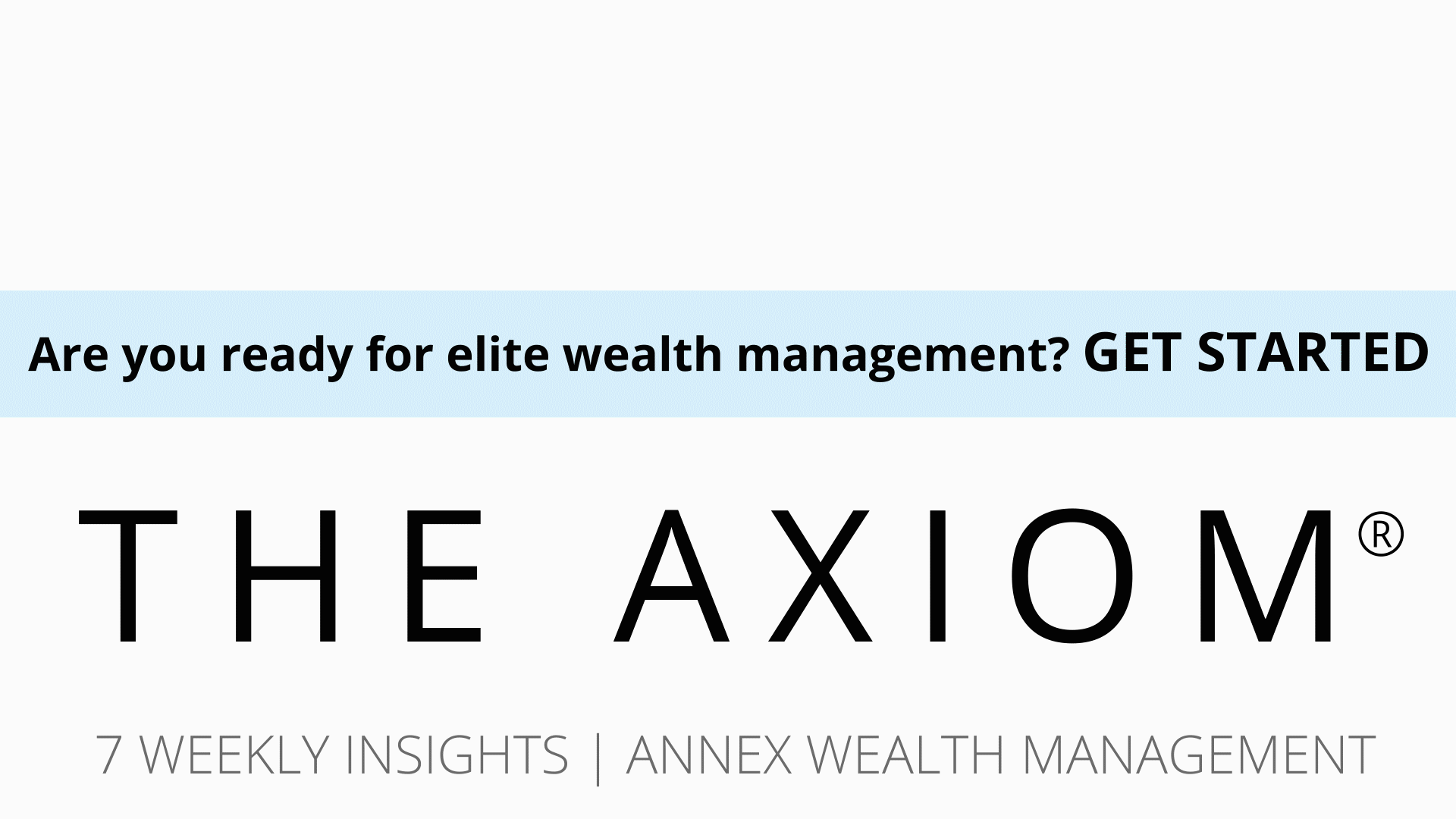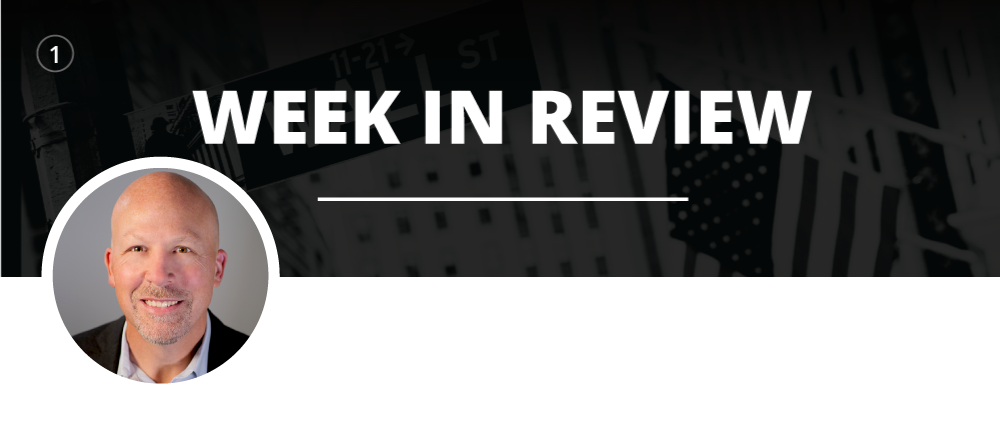
Axiom | Vol 274
Rough September Still Finds US Markets Ahead Of Internationals

Meet The Axiom®’s Guest Editor: Mark Beck
I’m Mark Beck, Managing Director of Wealth Management Services and host of The Annex Wealth Management Investment Show on NewsTalk 1130 WISN.
I’ve been fortunate enough to help lead a team of exceptional wealth managers who are dedicated to great client outcomes. Annex is truly unique in its depth of comprehensive planning and client engagement, and I’m proud to say that I’ve been part of the team that envisioned and brought to life this great model. I find it truly rewarding to know that we make a difference in people’s financial lives and help impact their overall well-being in a positive way.
I was born and raised in Kaukauna, WI, went to UW-Whitewater, and now live in Waterford, WI where Cathy, my wife, and I raised two fantastic kids.
BACK TO TOP ↑

“What I like about the Axiom is that it’s full of information, from simple to complex. We seek to share insights from across the spectrum of wealth management, and I feel like there is something for everyone.“
– Guest Editor: Mark Beck | Managing Director of Wealth Management Services
________________________________________
Rough September Still Finds US Markets Ahead Of Internationals
September is historically one of the worst months for markets. September 2021 was no different, but as other international economies slip, investors may find American markets the best option available. Annex Wealth Management’s Dave Spano and Derek Felske discuss.
BACK TO TOP ↑

Congress is getting closer to passing new tax legislation.
Poll: Who do you think the tax legislation will affect most?
BACK TO TOP ↑

Know How Roth And Traditional Accounts Could Help You
When it comes to saving for retirement, there’s an important question you must ask yourself: Should I pay taxes now or later? We all wish the government would let us set aside money for retirement and pay no taxes at all on those savings. But reality requires that we all pay taxes. When you decide to pay those taxes could have a significant impact on your financial future.
This week’s MoneyDo is to evaluate the benefits of Roth accounts and traditional accounts when it comes to your retirement savings.
Let’s cover the basics:
- With Roth accounts, you pay taxes now when money is contributed. Earnings grow tax-free, and qualified withdrawals come out tax-free.
- Contributions to traditional retirement accounts are pre-tax, which means you get a tax deduction now. Like a Roth account, the earnings grow year-by-year without being taxed. However, you pay income tax when taking money out of the account, which is typically in retirement.
Your goal is to pay taxes in the lower tax brackets. Many folks begin their working career in a lower tax bracket. In this case, it’s an ideal time to contribute to a Roth account. If you’re in a lower tax bracket than you will be in the future, you’re paying a lower tax rate now than you might if you waited until retirement to pay the taxes.
However, it’s not easy to predict the future. One of the risks of contributing to a Roth is the uncertainty of what tax rates will be in the future. Younger Roth contributors, who are generally further away from retirement, have the unique advantage of extra years to grow this tax-free savings.
Rules and requirements surrounding Roth accounts. If you contribute to a Roth IRA, some caution needs to be taken to be sure your income doesn’t exceed the threshold for contributing. In 2021, married individuals filing a joint return cannot earn more than $208,000 to be eligible for Roth contributions. If you’re under the income threshold, you can contribute to a Roth IRA at any age, as long as you have earned income.
There are no income tax deductions for contributions to Roth accounts, since the account is funded with after-tax dollars. There are also no required minimum distributions from Roth IRAs upon attainment of age 72, allowing funds to continue to grow tax free until needed for withdrawal.
As you continue into your career and gain more experience, skills and pay will likely increase. If you’re making more money, it is probable that you’ll pay more taxes. In this case, it may make sense to contribute to a traditional account. You won’t pay taxes now when you contribute, and money withdrawn from the traditional IRA/401(k) at retirement may fall into a lower tax bracket than your peak earning years.
Features and requirements of traditional retirement accounts. If you contribute to a traditional IRA, some caution needs to be taken to be sure your income doesn’t exceed the threshold for deducting the contribution if you are also an active participant in a qualified retirement plan. A 401(k) or pension plan are examples of common qualified plans.
In 2021, married individuals filing a joint return cannot earn more than $125,000 for contributions to a traditional IRA to be deducted. Also, upon reaching age 72, the government mandates that you begin your required minimum distributions and pay tax on those distributions.
Both Roth and traditional retirement accounts are powerful savings tools. It’s important to consider what your expected tax rate will be both now and in retirement. This analysis can help you decide which account type is best for you at this stage in your life. If you’d like assistance in deciding which is best for you, feel free to reach out to the team at Annex. We’d be happy to help.
BACK TO TOP ↑

“We give our readers a forum to ask their questions via Ask Annex, and the DYADT section shares insights into how we add value to client relationships.“
– Guest Editor: Mark Beck | Managing Director of Wealth Management Services
________________________________________
This week’s Ask Annex comes from Chris, who asks:
“What’s earning season & what does forward guidance have to do with it?”
___________________________
We asked Annex Wealth Management’s Todd Voit, PhD:
In order to be considered a “publicly-traded company,” a firm must regularly update interested parties about their financial health. The regular updates are delivered so that investors can make informed decisions about whether they want to remain stockholders—or even potentially buy more shares of the firm.
When those quarterly updates for public companies are released, it’s called “earnings season.”
Earnings season starts about two weeks after quarter and lasts through the middle of the next month. The reporting is often shared on a conference call, which is when publicly traded companies will report:
- The company’s earnings for the quarter
- The company’s earnings for the past year
- Forward guidance of what to expect in the future
Sometimes, companies will disseminate worse-than-expected earnings weeks before they actually report (earnings date). If enough companies do this or the backdrop of the market is negative, these pre-announcements can have a suppressing effect on the market. While negative news is sometimes pre-announced, companies generally don’t disseminate better-than-expected earnings before their actual report date.
At Annex, we listen to earnings calls all the time, and they generally follow similar formats:
Typically, an earnings call will begin with the Chief Executive Officer (CEO), discussing the state of the company, and significant events that have occurred. It’s generally accepted that the CEO will try to paint as rosy a picture as possible during this portion of the discourse.
After the CEO speaks, the call typically gets turned over to the Chief Financial Officers (CFO), who go through the firm’s earnings number, followed by a Q&A period. For us on the Annex investment team, this is the more interesting part of the earnings call – when investors who are listening or participating get a chance to hear analysts ask
(sometimes) very pointed, or at least insightful, questions.
Earnings season provides more than just individual corporate outlooks. Analysts will often knit together earnings estimates from multiple companies to build projections about the overall trajectory of the broader market. Once a company’s reporting is compared to estimates, analysts may revise estimates.
Because the season is both about estimates and reality, I’d extend a word of caution to those studying trade activity in the days leading up to and including an earnings report date. It may appear that an analyst knows something you don’t. In my experience, I’ve seen analysts nail corporate earnings with their estimates – and I’ve seen their suppositions miss.
There’s a lot of literature on earnings reporting, and if you’re interested, let me or anyone on the investment team know, and we’ll make sure you can read it.
Todd Voit, PhD
Chief Investment Strategist
BACK TO TOP ↑

You work your whole life to build a retirement savings. Then finally, it’s time to retire and spend it. Why is this transition so hard for so many?
BACK TO TOP ↑


KNOW THE DIFFERENCE MINUTE:
Do You Have A Plan To Weather Inflation?
KNOW THE DIFFERENCE MINUTE:
Why The Trucker Shortage Is Costing You
ANNEX RADIO
Annex Insurance Planning
BACK TO TOP ↑

Annex Wealth Management provides free workshops, open to the public, on key wealth management topics.
Each week, we provide links to register for upcoming events.
BACK TO TOP ↑